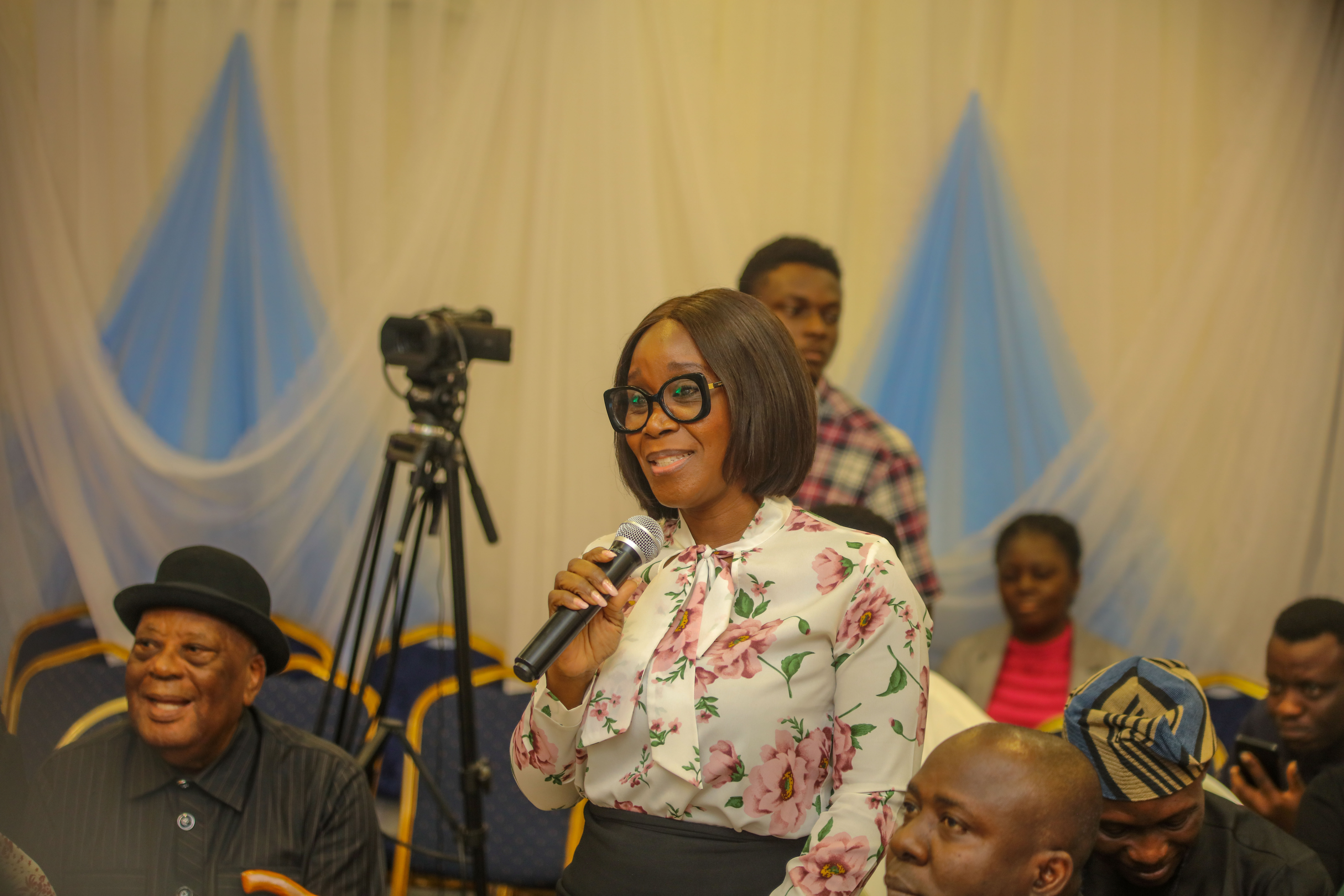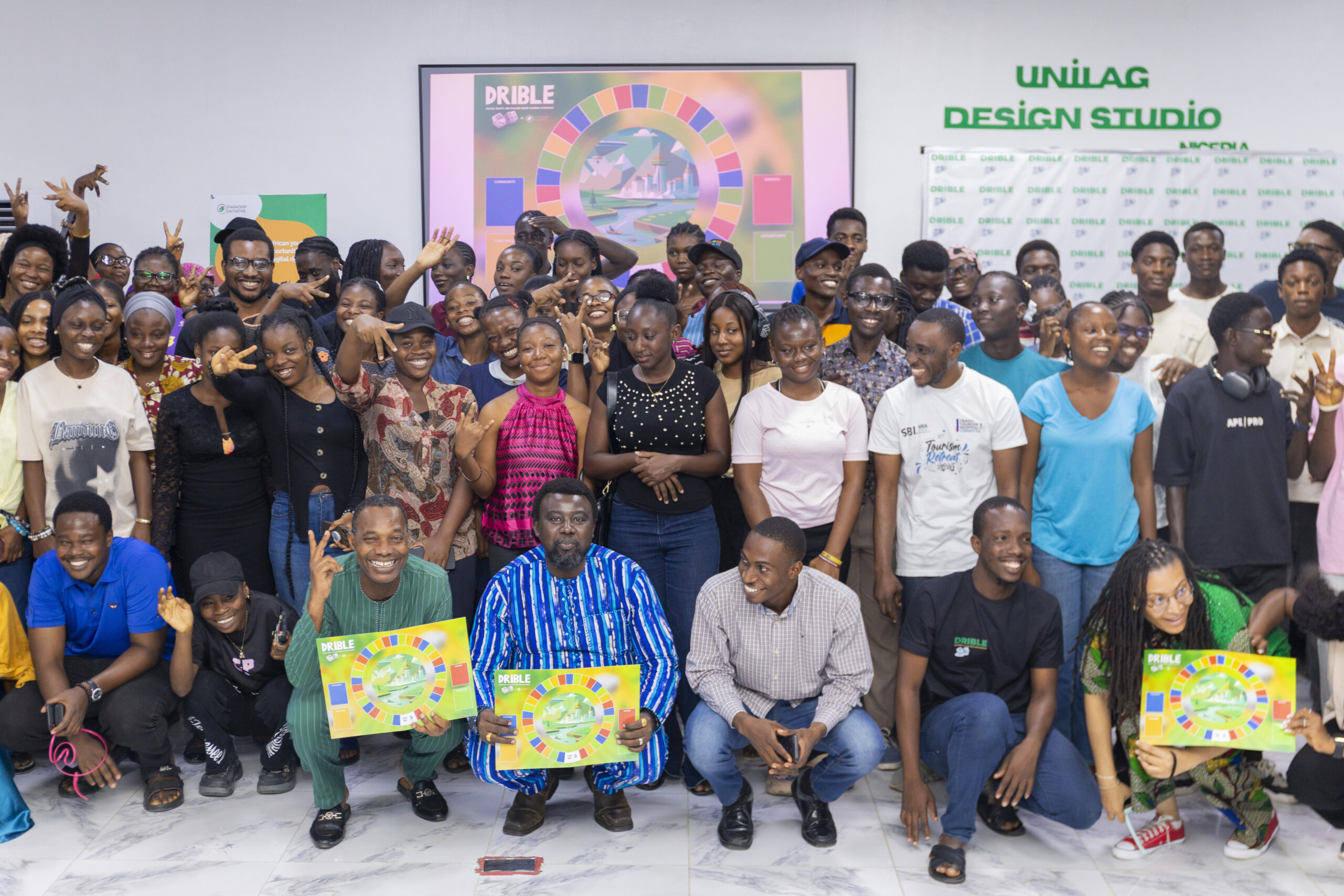Telecom
Global Initiative to Give 3.4bn People Access to Smartphones

An initiative has been launched by Vodafone Group and the UN’s International Telecommunication Union (ITU), to address the global digital divide.

It aims to give an additional 3.4 billion people the ability to access and use the internet through a smartphone by 2030.
In a statement, Vodafone says with mobile broadband (4G) networks now covering 82% of the population of low- and middle-income countries (LMICs), the mobile usage gap is six times larger than the mobile coverage gap.
In line with the Broadband Commission Global Targets 2025 on affordability and connectivity, the new working group will identify policy, commercial and circular-economy interventions to increase smartphone access.
Co-chaired by Vodafone Group CEO Nick Read and ITU secretary-general Houlin Zhao, the group’s launch partners also include the Alliance for Affordable Internet, the GSM Association, government of Ghana, Safaricom, Smart Africa, Vodacom Group and the World Wide Web Foundation.
Vodafone notes mobile accounts for 86% of connections to the internet in LMICs, emphasising the importance of mobile in addressing this issue. However, billions of people continue to use “dumb” feature phones, without an internet connection, and the 2G market continues to grow, it says.
Vital connectivity
The company explains this means the digital divide is widening, as the pandemic has accelerated the emergence of digital societies, and smartphones are increasingly an essential gateway to access public services – including education and medical support – financial services, jobs and to run businesses.
Read comments: “Vodafone is honoured to be part of this monumental global initiative with the UN, to improve the lives of billions of people through smartphone access. As our societies become more digital, everyone should have the ability to find jobs, be able to get public services, financial services and critical information that are increasingly only available through the internet.
“This is such a complex challenge that no network operator, device manufacturer, financial services provider or national government can solve it on their own – but working together we can break through the barriers.”
Shameel Joosub, CEO of Vodacom Group, says: “We are aware of the many different socio-economic complexities and dynamics which continue to prevent universal digital access in modern society, which should be a right and not a privilege.
“The pledge by the United Nations, Vodafone Group and the ITU to increase smartphone access for 3.4 billion people around the world is timely and important. As Vodacom works to connect the next 100 million African people through its Africa.Connected campaign, we look forward to supporting Vodafone’s ambition to ensure no one is excluded from the global digital economy, and may enjoy access to education, jobs, public and financial services.”
Zhao notes: “Achieving the Broadband Commission Global Targets requires a multi-stakeholder approach. I am pleased to co-chair this newly established working group, which will also help address the challenges posed by the COVID-19 pandemic and ensure we put smart devices in the hands of those who are left behind.”
Maria-Francesca Spatolisano, officer-in-charge of the office of the United Nations secretary-general’s envoy on technology, says: “The UN secretary general’s Roadmap for Digital Cooperation aims to achieve universal connectivity by 2030.
“Smartphone access is a key element of this in low- and middle-income countries, where mobile is the principal route to the internet. As such, this working group can have an important role in ensuring the shift to digital technology is beneficial and makes our societies more equal and not less.”
The Broadband Commission Working Group will produce a report and set of concrete recommendations, including original analysis and data on the smartphone access gap; quantification of the social and economic impact of providing everyone with smartphone access by 2030, including assessment of moving users from 2G feature phones to 4G smartphones; and analysis of initiatives or pilots designed to increase smartphone access.
Getting everyone online
Vodafone Group says it has committed to launch two pilot projects on device affordability as part of this process.
“This partnership is key to expand access to the internet,” says Doreen Bogdan-Martin, director of the ITU Telecommunication Development Bureau.
“I am confident that the outcome report will provide guidance to all our stakeholders as we prepare for the ITU World Telecommunication Development Conference in 2022 to build a world where no one is left offline.”
To coincide with the creation of the new working group, Vodafone, Vodacom and Safaricom today published the second “Africa.Connected” report on accelerating 4G for Sub-Saharan Africa.
Telecom
MTN’s ₦31.75Bn Investment in Health Lauded at Arthur Mbanefo Lecture

MTN Foundation has been spotlighted as a model for private sector-driven healthcare development in Nigeria, following commendations at the 6th Arthur Mbanefo Lecture held at the University of Lagos, Akoka.

Themed “A Healthy Nation is a Wealthy Nation: The Role of Impact Investments and Sustainable Financing in Nigeria,” the lecture featured Dr. Tolulope Adewole, Managing Director of NSIA Advanced Medical Services Limited (MedServe), as keynote speaker.
Dr. Adewole praised the Foundation’s strategic investments, noting that MTN commits 1% of its profit after tax annually to development sectors. “They’ve invested ₦31.75 billion, reaching over 32 million Nigerians. Though only 25% went to health, it accounted for 51% of all lives impacted. That’s catalytic,” he said.
He cited MTN’s dialysis centre programme as a transformative intervention for patients with kidney disease, and highlighted community-focused initiatives like the Y’ello Doctor mobile scheme and ‘What Can We Do Together’ (WCWDT) programme, which revitalised 164 Primary Healthcare Centres, including 44 in 2024 alone.
Executive Director of MTN Foundation, Odunayo Sanya, reflected on the COVID-19 pandemic’s exposure of systemic health vulnerabilities. “When COVID hit, we realised a health emergency is also an economic and social emergency,” she said.
Sanya revealed that of the 52 PHCs remodeled in 2024, only one had clean water. “I’m not a doctor, but I know you can’t live a good life without clean water,” she added, reaffirming the Foundation’s commitment to bridging healthcare gaps in underserved communities.
Telecom
PIN to Empower 20 Million Youths with New Digital Rights Board Game

Hundreds of university students across Africa are set to benefit from a new gamified learning experience on digital rights and inclusion launched by the leading pan-African non-profit organisation, Paradigm Initiative (PIN).

The Digital Rights and Inclusion Board Learning Experience (DRIBLE) is a game developed by Paradigm Initiative with support from the Open Society Foundations (OSF). The custom-designed board game provides young individuals with a fun and engaging entry point into digital rights and inclusion conversations, training sessions and storytelling tools.
The board game aims to build digital literacy, deepen understanding of online safety, and introduce young individuals to the organisation’s tools of impact. Currently being piloted in three universities: University of Lagos, Nigeria, the Catholic University of Eastern Africa (CUEA) in Nairobi, Kenya and the Dakar American University of Science and Technology (DAUST) in Dakar, Senegal, it will enhance interactions and create a holistic experience.
Speaking at the event launch at the University of Lagos, Nigeria, ‘Gbenga Sesan, Paradigm Initiative’s Executive Director, said: “PIN’s vision is to reach 20 million people through our Digital Inclusion and Digital Rights interventions. From Lagos, to Dakar, to Nairobi.. we will use the vehicle of our new Digital Rights and Inclusion Board Learning Experience (DRIBLE) which entails using gamification, training, multimedia materials, tools and other interventions to connect African youth with digital opportunities and protect their digital rights.”
‘Gbenga gave the keynote address on “Digital inclusion at PIN, our Past, Present and Future” and Nnenna Paul-Ugochukwu, the organisation’s Chief Operating Officer, said the goal of the learning experience would be instrumental in raising awareness of digital rights among the youth, building their capacity to address digital rights and inclusion issues in their communities. Prof. Olunifesi Adekunle Suraj shared a goodwill message with the students and other stakeholders.
Paradigm Initiative, which has been operational since 2007, started in a tiny cybercafe in Ajegunle, Lagos, Nigeria. Today, the organisation has expanded its wings to cover six African countries; Cameroon, Kenya, Nigeria, Senegal, Zambia and Zimbabwe, impacting the livelihoods of over 150,000 young Africans.
The launch of DRIBLE builds on the progress the organisation has made over the years in tackling the challenge of digital exclusion across Africa.
Paradigm Initiative’s tools of impact include Ripoti, a platform that enables individuals to report digital rights violations, Ayeta, a platform that provides digital security resources for stakeholders, more so human rights activists, defenders, journalists and other vulnerable groups, and the organisation’s latest short film, Whispers in the Wires.
Targeted at students, PIN rolled out a Campus Tour in the three universities on the continent starting July 15th, 2025.
Telecom
Meta Cracks Down on Fake Accounts, Deletes 10m Profiles

Meta, the parent company of Facebook, has intensified its crackdown on fake accounts and spam, announcing it removed over 10 million fake profiles and roughly 500,000 spam accounts in the first half of 2025.

The sweeping purge is part of Meta’s broader effort to combat impersonation, fake engagement, and content duplication, aiming to elevate authentic creators and improve the quality of content across its platforms.
In a blog post, Meta said: “We’re making progress. In the first half of 2025, we took action on around 500,000 accounts engaged in spammy behaviour or fake engagement. We also removed about 10 million profiles impersonating large content producers.”
Meta stressed that accounts which primarily repost or recycle content without meaningful edits will face penalties such as reduced reach and the loss of monetisation tools.
The company also warned that repeatedly sharing unoriginal content — whether videos, photos, or text — undermines the platform’s integrity by crowding out genuine voices and making it harder for new creators to grow.
To support authentic creators, Meta is rolling out new tools that automatically trace reposted content back to its original source. The company says this will help ensure rightful credit and give higher visibility to original posts.
“Pages and profiles that post mostly original content tend to enjoy wider distribution across Facebook. Simply stitching clips together or adding a watermark will no longer count as meaningful editing. Content that provides real value and tells an authentic story is likely to perform better,” Meta explained.
Creators are also being cautioned against uploading content that includes watermarks from other platforms. Such posts could see their reach restricted or lose monetisation privileges altogether.
As part of its latest update, Meta introduced post-level insights on the Professional Dashboard, allowing creators to monitor how individual posts perform. They can also check their Support Home screen to see if their content or earnings are facing restrictions.
In a parallel development, Google’s YouTube updated its monetisation guidelines, stating that content deemed mass-produced or excessively repetitive will no longer qualify for ad revenue. The announcement initially sparked concern among creators, who feared it was a blanket ban on AI-generated content. YouTube later clarified:
“We welcome creators using AI tools to enhance their storytelling, and channels that use AI in their content remain eligible to monetise.”
Both tech giants say these new policies are aimed at raising content standards and safeguarding genuine creators in a crowded and rapidly evolving digital landscape.

 Telecom2 days ago
Telecom2 days agoMTN’s ₦31.75Bn Investment in Health Lauded at Arthur Mbanefo Lecture

 E-Financial3 days ago
E-Financial3 days agoZenith Banks Leads as 8 Banks Suffer N156Bn Impairment Charges

 Telecom3 days ago
Telecom3 days agoMTN @ Swish Fusion Summit, Showcases 5G Rollout Strategy

 News2 days ago
News2 days agoCAC Flags Three Companies, Warns Nigerians

 E-Business3 days ago
E-Business3 days agoOlatunji, NDPC Boss Calls for Integrated Strategy on Data Privacy, Cyber-Security

 E-Business2 days ago
E-Business2 days agoFrance Moves to Tackle Online GBV in Africa with $4.3m Funding

 News3 days ago
News3 days agoUS Launches ‘Window on America’ @ Ogun Tech Hub

 E-Business3 days ago
E-Business3 days agoKaspersky Experts Warn of the Risks Hidden Behind QR Codes



























